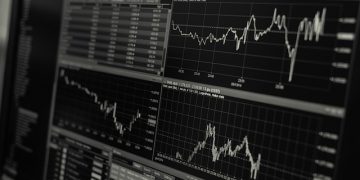The Market
When you trade, you trade financial assets of one kind or an additional.
There are various courses, or kinds, of assets– such as taken care of income financial investments – that are organized together based on their
having a similar monetary framework and because they are usually sold the same monetary markets as well as based on the same regulations and also laws.
There’s some argument regarding specifically the amount of different classes
of assets there are, however numerous experts commonly separate assets right into
the complying with five groups:
• Stocks, or equities – Equities are shares of ownership that are
released by openly traded companies as well as traded on stock exchanges, such as the NYSE or Nasdaq. You can possibly
make money from equities either via an increase in the share cost or by getting rewards.
• Bonds, or other fixed income investments (such as
deposit slips– CDs)– Fixed-income investments are
investments in securities that pay a fixed rate of return in the
type of interest. While not all fixed income investments provide a certain ensured return, such financial investments are normally taken into consideration to be less danger than investing in equities or various other asset courses.
• Cash or cash equivalents, such as money market funds– The primary benefit of cash or cash equal financial investments is their liquidity. Money held in the form of cash or cash equivalents can be rapidly and also conveniently accessed at any time.
• Real estate, or other tangible assets– Real estate or various other
tangible assets are considered as an asset class that offers
defense against inflation. The tangible nature of such
assets additionally causes them being taken into consideration as even more of a.
” real” asset, as compared to assets that exist just in the kind.
of economic instruments.
• Futures as well as other financial derivatives– This group.
includes futures agreements, the foreign exchange market, alternatives, and also an increasing variety of economic derivatives.
Kinds of Markets.
For the trading of assets, there are several different types of markets that help with trade. Each market operates under various trading devices. The three major kinds of markets are:
1. Dealers (additionally known as the over-the-counter market).
2. Brokers.
3. Exchanges.
The Fixed Income Market.
Fixed income securities such as Treasury bonds are a kind of debt tool that supplies returns in the form of regular, or repaired, repayments and settlements of the principal when maturity is reached. These instruments are released by governments firms and also other entities to fund their procedures. They vary from equity, as they do not involve ownership in a business, however bonds generally have ranking of claim in cases of bankruptcy or default.
Fixed income securities are typically considered a safer investment than equities or various other market financial investments, yet do not usually provide investment returns as high as those that can be gotten via other financial investments.
The Money Market.
The money market is an arranged exchange market where individuals can provide as well as obtain short-term, top notch financial obligation securities for one year or less. The market allows federal governments, business, or financial institutions as well as other financial institutions to obtain temporary securities to fund their temporary cash flow needs. It also allows private financiers to invest small amounts of money in a low-risk market. Several of the instruments traded in this market consist of Treasury costs, certificates of deposit, commercial paper, bills of exchange, and temporary mortgage-backed or asset-backed securities.
The Stock Market.
The stock market refers to public markets that exist for providing,
purchasing, and marketing of stocks that trade on a stock market or over-the-counter. Stocks, also called equities, stand for fractional possession in a company, asset, or security, therefore the stock market is an area where capitalists can buy and sell ownership of such investable assets. An efficiently working stock market is crucial to economic development, as it provides firms the ability to swiftly access funding from the public.
How to trade stocks – Exchanges and also OTC.
The majority of stocks are traded on exchanges such as the New York City Stock: Exchange (NYSE) or the NASDAQ. Stock market basically.
supply the industry to help with the buying and selling of stocks among financiers. Stock exchanges are managed by government agencies, such as the Stocks and Exchange Commission(SEC) in the United States, that look after the market in order to secure financiers from economic fraud and to maintain the exchange market operating smoothly.
Although the vast bulk of stocks are traded on exchanges,.
some stocks are traded over-the-counter (OTC), where purchasers as well as sellers of stocks typically trade via a dealer, or “market maker”, who especially manages the stock. OTC stocks are stocks that do not satisfy the minimum cost or other needs for.
being listed on exchanges.
Stock Market Indexes.
The general efficiency of the stock markets is normally tracked and shown in the performance of numerous stock market indexes.
Stock indexes are composed of an option of stocks that is.
designed to show exactly how stocks are carrying out generally. Stock market indexes themselves are traded in the form of alternatives and futures contracts which are also traded on regulated exchanges.
Among the essential stock market indexes are the Dow Jones Industrial.
Typical (DJIA), Criterion & Poor’s 500 Index (S&P 500), the Financial Times Stock Market 100 Index (FTSE 100), the Nikkei 225 Index,.
the NASDAQ Composite Index, as well as the Hang Seng Index. Bull and also Bear Markets, as well as Brief Selling Two of the fundamental principles of stock market trading are “bull” and also ” bear” markets. The term bull market is made use of to refer to a stock market in which the cost of stocks is typically climbing. This is the type of market most investors succeed in, as most of stock financiers are purchasers, instead of sellers, of stocks. A bearishness exists when stock rates are overall decreasing in cost.
Final thought.
Knowing commodity trading provides traders significant.
benefits, such as high amounts of take advantage of and the opportunity.
to ride continual bull or bear fads. However, asset trading.
is not a charitable company that gives out traveling bags filled with.
money to anybody that wants some. Equally as holds true with any kind of.
other spending field, it takes technique and method to end up being a.
highly-skilled as well as effective product investor. One of the major.
challenges is learning just how to make the most of the leverage.
supplied without exposing yourself to exceedingly high dangers and.
possibly tragic losses.




